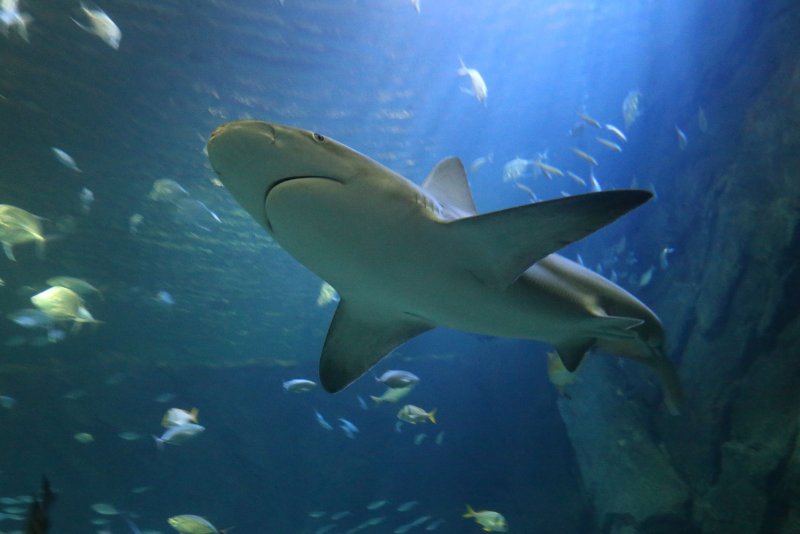
Continuing a five-year trend, Florida topped global charts in the number of shark bites with 28 -- representing 60% of the U.S. total and 38% of unprovoked bites worldwide. File Photo by Bill Greenblatt/UPI | License Photo
Jan. 25 (UPI) -- The United States led the world with 47 unprovoked shark bites during 2021, the International Shark Attack File reported.
The annual report, a project of the Florida Museum of Natural History, revealed Monday that there were 73 unprovoked bites and 39 provoked incidents worldwide last year, resulting in nine deaths.
Unprovoked bites are defined as those in which a human is attacked in a shark's natural habitat; provoked bites occur when a person initiates interaction with a shark in some way. The International Shark Attack File investigated 137 alleged shark-human interactions worldwide in 2021. The group confirmed 73 unprovoked shark bites on humans and 39 provoked bites.
Continuing a five-year trend, Florida topped global charts in the number of shark bites with 28 -- representing 60% of the U.S. total and 38% of unprovoked bites worldwide.
Australia followed the United States in the highest number of unprovoked bites with 12 incidents. But three of those resulted in deaths, the most recorded by any nation during 2021.
In one case, a surfer was killed off New South Wales in May. Police said the man seemed to have seen the shark and tried to warn others. Two great white sharks, both measuring nearly 15 feet, were spotted by drones deployed above the waters near the beach.
A separate study by Australia's Taronga Conservation Society reported 17 total shark attacks in that country during 2021 as of late November.
Brazil had the the third-highest number of unprovoked attacks with three, including one fatality, the ISAF report showed.
In the United States, Florida's total of unprovoked attacks were followed in order by Hawaii (six), California (three) , South Carolina (four), North Carolina (three) , Georgia (two) and Maryland (one).
In one attack, a surfer died in late December in the water off Morro Bay State Park in California. His body was found by a fellow surfer shortly after the attack by a great white shark. It was the first fatal shark attack reported in San Luis Obispo County in 18 years.
Tyler Bowling, manager of the ISAF, said, "Shark bites dropped drastically in 2020 due to the pandemic. This past year was much more typical, with average bite numbers from an assortment of species and fatalities from white sharks, bull sharks and tiger sharks."
The report said the 47 unprovoked attacks in the United States "is 42 percent higher than the 33 incidents that occurred in 2020."
Bowling further noted that the number of unprovoked fatal attacks similarly remained high in 2021, with most occurring in the South Pacific. He said there were six confirmed deaths in Australia, New Caledonia and New Zealand while single incidents occurred in South Africa, Brazil and the United States.
Annual fluctuations in shark-human interactions are common, the study said.
Despite 2020's and 2021's spike in fatalities, long-term trends show a decreasing number of annual fatalities, the study said.
"Year-to-year variability in oceanographic, socioeconomic and meteorological conditions significantly influences the local abundance of sharks and humans in the water."
Gavin Naylor, director of the Florida Program for Shark Research, says there are five ways to minimize the chance of getting bitten by a shark:
Don't go into water alone.
Don't go into water at dawn or dusk.
Don't go into water where's there a lot of fish or where people are fishing.
Don't go into water wearing jewelry.
Try to avoid splashing at the water's surface.
No comments:
Post a Comment